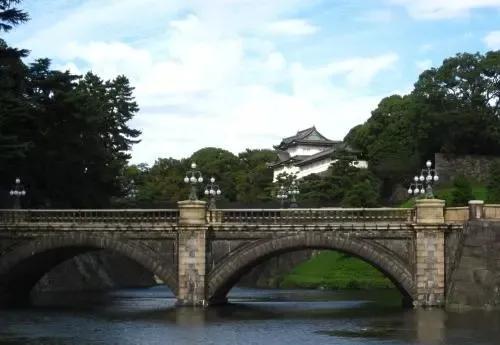Recently, the media reported that the Niece of the Japanese Emperor, Princess Mako, gave up her imperial status to marry a commoner, which reminded me of the Japanese emperor and his royal family (imperial family) who are low-key and almost forget her existence.
The Emperor of Japan (Japanese: にほんてんのう, English: The Emperor of Japan/mikado) is a title for the Japanese monarch who is said to be a descendant of the god of creation in Japanese mythology, Amaterasu (which is why the Japanese emperor does not have a surname), the supreme leader of Shintoism, and the national symbol of Japan. From the myth and legend of Emperor Kammu to the current Emperor Naruhito, there are 126 generations.

The earliest written record of the name of the Japanese emperor is the "Asuka Pure Imperial Decree" issued by Japan in 689 AD, and China began to call the Japanese head of state emperor, around the time of the Tongzhi dynasty of the Qing Dynasty.
The Japanese imperial system is the longest monarchy in the history of the world, and after the Meiji Restoration in modern times, it was proclaimed that "the lineage of all generations" was declared and written into the constitution, that is, Japan has not changed dynasties since ancient times, and has always been a line of the imperial family. Due to its age and a large number of mythological overtones, it is difficult to determine the authenticity of the ancient emperor. Archaeology can confirm its actual existence from the beginning of Emperor Shōjin, and the credibility of the history that began with Emperor Shinshin has greatly increased.
From the establishment of the Kamakura shogunate in 1185 to the restoration of the great government in 1867, the power of the emperor was suspended for 682 years. After the Meiji Restoration, Japan gradually embarked on the path of militarism, and Emperor Showa commanded and planned to launch successive wars of aggression such as the Japanese War of Aggression against China and the Pacific War, causing huge and profound disasters to the people of Asia and other countries in the world.
At the end of World War II, Japan made unconditional surrender conditional on the emperor's status as a symbolic head of state. In 1946, the United States forced Emperor Showa to issue a declaration on earth, denying his status as a "god" on earth and acknowledging that he no longer had divinity. According to the Constitution of Japan, the Emperor's main duties are now to appoint the Prime Minister, approve laws, decrees, and treaties, convene the Diet, approve the appointment and dismissal of the Minister of State, and attend ceremonial foreign affairs events and state ceremonies. The japanese imperial family crest is "sixteen petals eight-fold table chrysanthemum pattern".
After World War II, the Japanese Emperor, as a symbolic head of state, seemed to have become only a mascot of Japan and harmless to humans and animals. However, throughout modern history, the successive Japanese emperors from Meiji to Showa have all been the culprits of Japanese militarism in launching wars of aggression against foreign countries, and in the core ideology of militarism, the emperor and the emperor system as spiritual pillars and institutional carriers, their status and role as gods and cards cannot be ignored.
After the defeat in the war, Japanese militarism was not completely liquidated and eradicated like Germany because it was protected by the United States, and its ghost remained haunted for a long time. Recently, the militarist forces have been on the rise and intensifying, and the tide of the day is rising, and there is a great potential for restoration.
We must be vigilant about whether the Japanese Emperor is just a mascot or is lurking and waiting for an opportunity; we must be vigilant about whether the Japanese Emperor will be kidnapped and used by the militarist forces, become a soul-summoning banner, and even become the leading big brother of militarism again; we must be vigilant that the harmless appearance of the Emperor of Japan has whitewashed Japan's international image, lowered people's vigilance, and covered the secret growth of militarist forces. Otherwise, why did the Japanese militarist forces desperately cover the emperor from being held accountable for the war and retain the emperor system?